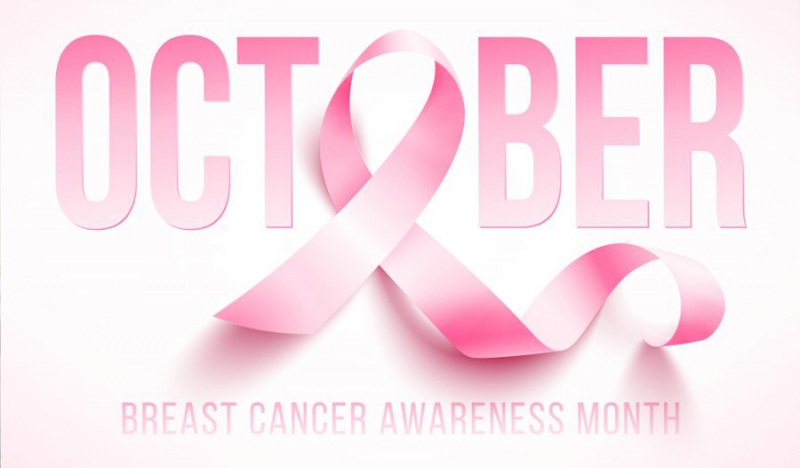This month’s topic for October’s Gym Talk is breast cancer awareness. October is breast cancer awareness month and we thought we’d share some eye-opening facts on breast cancer. One in eight women in the United States will be diagnosed with breast caner in her lifetime. Breast cancer is also the most commonly diagnosed cancer in women and the second leading cause of cancer death among women. However, there has been a gradual reduction in female breast cancer incidence rates for those aged 50 and older and death rates have also been declining. There are over 3.3 million survivors in the United States Today.
The process of cell growth does not always go perfectly causing uncontrolled growth and spread of abnormal cells resulting from damage to DNA. When this occurs a buildup of cells occurs called a tumor. Both male and female are born with breast cells and yes, even a male can develop breast cancer, but it is very rare. Less than one percent of all breast cancer cases develop in men.
There are two types of tumors that can occur, non-cancerous (benign) or cancerous (malignant). Benign tumors usually can be left alone unless they continue to grow putting pressure on organs or causing pain. Cancerous tumors can damage and invade surrounding tissue therefore a biopsy is done to determine the severity of the tumor. If the cancer is metastatic then the cancer cells can spread to other parts of the body and form other tumors. Cancer can spread in three ways, damaged cells replicate, our body’s hormones and chemicals speed up the growth process of the tumors, or lymph and blood vessels can carry the cancer to other areas of the body.
Research shows that exercise can reduce the risk of being diagnosed with breast cancer and reducing the recurrence rate for those already diagnosed. Exercise is considered safe during and after breast cancer treatments but be sure to take any precautions necessary and keep the intensity low. Exercise can improve physical function, quality of life, and cancer-related fatigue.
No one knows the exact cause of breast cancer, but those with certain risk factors are more likely to develop breast cancer than those without.
Some risk factors cannot be avoided such as gender, age, race, family history, dense breast tissue, early menstruation, or late menopause, while others can such as, lack of physical activity, poor diet, being overweight, drinking alcohol, radiation to the chest, or hormone replacement therapy.



